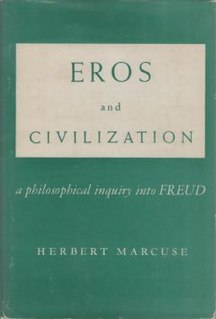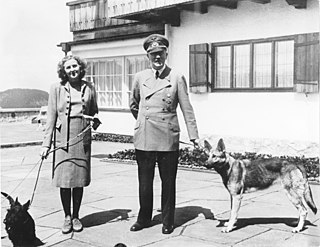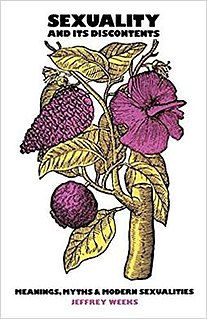Related Research Articles

Heterosexuality is romantic attraction, sexual attraction or sexual behavior between persons of the opposite sex or gender. As a sexual orientation, heterosexuality is "an enduring pattern of emotional, romantic, and/or sexual attractions" to persons of the opposite sex; it "also refers to a person's sense of identity based on those attractions, related behaviors, and membership in a community of others who share those attractions." Someone who is heterosexual is commonly referred to as straight.

Sigmund Freud was an Austrian neurologist and the founder of psychoanalysis, a clinical method for evaluating and treating pathologies in the psyche through dialogue between a patient and a psychoanalyst.

The sexual revolution, also known as a time of sexual liberation, was a social movement that challenged traditional codes of behavior related to sexuality and interpersonal relationships throughout the United States and the developed world from the 1960s to the 1980s. Sexual liberation included increased acceptance of sex outside of traditional heterosexual, monogamous relationships. The normalization of contraception and the pill, public nudity, pornography, premarital sex, homosexuality, masturbation, alternative forms of sexuality, and the legalization of abortion all followed.

Orgone is a pseudoscientific concept variously described as an esoteric energy or hypothetical universal life force. Originally proposed in the 1930s by Wilhelm Reich, and developed by Reich's student Charles Kelley after Reich's death in 1957, orgone was conceived as the anti-entropic principle of the universe, a creative substratum in all of nature comparable to Mesmer's animal magnetism (1779), to the Odic force (1845) of Carl Reichenbach and to Henri Bergson's élan vital (1907). Orgone was seen as a massless, omnipresent substance, similar to luminiferous aether, but more closely associated with living energy than with inert matter. It could allegedly coalesce to create organization on all scales, from the smallest microscopic units—called "bions" in orgone theory—to macroscopic structures like organisms, clouds, or even galaxies.
The sex-positive movement is a social and philosophical movement that seeks to change cultural attitudes and norms around sexuality, promoting the recognition of sexuality as a natural and healthy part of the human experience and emphasizing the importance of personal sovereignty, safer sex practices, and consensual sex. It covers every aspect of sexual identity including gender expression, orientation, relationship to the body, relationship-style choice, and reproductive rights. Sex-positivity is "an attitude towards human sexuality that regards all consensual sexual activities as fundamentally healthy and pleasurable, encouraging sexual pleasure and experimentation." The sex-positive movement also advocates for comprehensive sex education and safe sex as part of its campaign. The movement generally makes no moral distinctions among types of sexual activities, regarding these choices as matters of personal preference.

The History of Sexuality is a four-volume study of sexuality in the Western world by the French historian and philosopher Michel Foucault, in which the author examines the emergence of "sexuality" as a discursive object and separate sphere of life and argues that the notion that every individual has a sexuality is a relatively recent development in Western societies. The first volume, The Will to Knowledge, was first published in 1976; an English translation appeared in 1978. The Use of Pleasure, and The Care of the Self, were published in 1984. The fourth volume, Confessions of the Flesh, was published posthumously in 2018.

The Institut für Sexualwissenschaft was an early private sexology research institute in Germany from 1919 to 1933. The name is variously translated as Institute of Sex Research, Institute of Sexology, Institute for Sexology or Institute for the Science of Sexuality. The Institute was a non-profit foundation situated in Tiergarten, Berlin. It was headed by Magnus Hirschfeld, who since 1897 had run the Wissenschaftlich-humanitäres Komitee, which campaigned on progressive and rational grounds for LGBT rights and tolerance. The Committee published the long-running journal Jahrbuch für sexuelle Zwischenstufen. Hirschfeld built a unique library on same-sex love and eroticism.
David Thorstad was an American political activist engaged with pro-pedophile activism within the North American Man/Boy Love Association, of which he was a founding member. He was also a former president of New York's Gay Activists Alliance.

Libertarian Marxism is a broad scope of economic and political philosophies that emphasize the anti-authoritarian and libertarian aspects of Marxism. Early currents of libertarian Marxism such as left communism emerged in opposition to Marxism–Leninism.

Eros and Civilization: A Philosophical Inquiry into Freud is a book by the German philosopher and social critic Herbert Marcuse, in which the author proposes a non-repressive society, attempts a synthesis of the theories of Karl Marx and Sigmund Freud, and explores the potential of collective memory to be a source of disobedience and revolt and point the way to an alternative future. Its title alludes to Freud's Civilization and Its Discontents (1930). The 1966 edition has an added "political preface".

Freudo-Marxism is a loose designation for philosophical perspectives informed by both the Marxist philosophy of Karl Marx and the psychoanalytic theory of Sigmund Freud. It has a rich history within continental philosophy, beginning in the 1920s and 1930s and running since through critical theory, Lacanian psychoanalysis, and post-structuralism.

Homosexuality is romantic attraction, sexual attraction, or sexual behavior between members of the same sex or gender. As a sexual orientation, homosexuality is "an enduring pattern of emotional, romantic, and/or sexual attractions" to people of the same sex. It "also refers to a person's sense of identity based on those attractions, related behaviors, and membership in a community of others who share those attractions."

The Dialectic of Sex: The Case for Feminist Revolution is a 1970 book by the radical feminist activist Shulamith Firestone. Written over a few months when Firestone was 25, it has been described as a classic of feminist thought.

Die Sexualität im Kulturkampf, 1936, is a work by Wilhelm Reich. The subtitle is "zur sozialistischen Umstrukturierung des Menschen", the double title reflecting the two-part structure of the work.

Adolf Hitler's sexuality has long been a matter of historical and scholarly debate, as well as speculation and rumour. There is evidence that he had relationships with a number of women during his lifetime, as well as evidence of his antipathy to homosexuality, and no evidence of homosexual encounters. His name has been linked to a number of possible female lovers, two of whom committed suicide. A third died of complications eight years after a suicide attempt, and a fourth also attempted suicide.
Communist attitudes towards LGBT rights have evolved radically in recent years. In the 19th and 20th century, communist states and parties varied on LGBT rights; some were among the first political parties to support LGBT rights while others harshly persecuted people of the LGBT community.

Within the work of the Austrian psychoanalyst Wilhelm Reich (1897–1957), orgastic potency is a human's natural ability to experience an orgasm with certain psychosomatic characteristics and resulting in full sexual gratification.

Freud, Biologist of the Mind: Beyond the Psychoanalytic Legend is a 1979 biography of Sigmund Freud, the founder of psychoanalysis, by the psychologist Frank Sulloway.

Freud: The Mind of the Moralist is a book about Sigmund Freud, the founder of psychoanalysis, by the sociologist Philip Rieff, in which the author places Freud and psychoanalysis in historical context. Rieff described his goal as being to "show the mind of Freud ... as it derives lessons on the right conduct of life from the misery of living it."

Sexuality and Its Discontents: Meanings, Myths, and Modern Sexualities is a 1985 book about the politics and philosophy of sex by the sociologist Jeffrey Weeks. The book received positive reviews, crediting Weeks with explaining the theories of sexologists and usefully discussing controversial sexual issues. However, Weeks was criticised for his treatment of feminism and sado-masochism.
References
- ↑ Russell Jacoby (1 July 1986). The Repression of Psychoanalysis: Otto Fenichel and the Freudians. University of Chicago Press. pp. 79–. ISBN 978-0-226-39069-7.
- ↑ The New York Times Book Review. New York Times Company. January 1972. p. 30.
- ↑ Rama Demetrius Dyushambee (1 November 2004). Cosmic Consciousness: A Grass Roots Do-It-Yourself Action Manual for Developing Individual and Human Species Capacity for A Better Quality of Life and a Viable Global Vision and Future. YOUtopia INstitute. pp. 193–. ISBN 978-0-9763181-0-1.
- ↑ Reed Business Information (6 July 1972). "New Scientist". New Scientist Careers Guide : The Employer Contacts Book for Scientists. Reed Business Information: 50–. ISSN 0262-4079.
- ↑ Socialist Workers Party (1976). Gay liberation and socialism: documents from the discussions on gay liberation inside the Socialist Workers Party (1970-1973). Thorstad. p. 28.
- ↑ James E. Strick (1 April 2015). Wilhelm Reich, Biologist. Harvard University Press. pp. 405–. ISBN 978-0-674-28688-7.
- ↑ Udo Schaefer (1983). The Imperishable Dominion: The Baháʼi Faith and the Future of Mankind. G. Ronald. p. 44. ISBN 978-0-85398-142-8.
- ↑ http://www.wilhelmreichtrust.org/invasion_of_compulsory_sex-morality.html [ dead link ]
- ↑ Dirk Bruere (February 2011). Technomage. Lulu.com. pp. 304–. ISBN 978-0-9567587-0-5.
- ↑ The Journal of Mind and Behavior. Journal of Mind and Behavior, Incorporated. 1980. p. 262.
- ↑ "The invasion of compulsory sex-morality.". World Cat